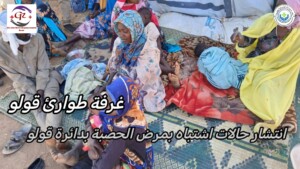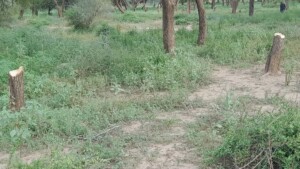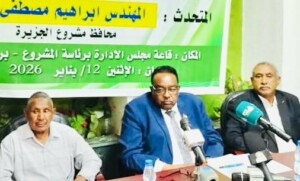770,000 affected by Sudan floods this year
Sudan’s High Committee for Rainy Season Emergencies announced that 770,000 people have been affected by the heavy rains and floods in the country this year.
 Cartoon by Omar Defallah
Cartoon by Omar Defallah
Sudan’s High Committee for Rainy Season Emergencies announced that 770,000 people have been affected by the heavy rains and floods in the country this year.
Head of the committee, Labour and Social Development Minister Lina El Sheikh said in a press conference yesterday that the number of deaths reached 121, while the number of injuries reached 45 cases.
According to the report, the number of totally collapsed houses reached 40,373, while the number of partially collapsed houses reached 58,040.
Floods and rains also led to the collapse of 250 government facilities. 97,751 crops have been destroyed and 5,930 livestock deaths were reported.
The Secretary General of Civil Defence, Maj Gen Omar Ahmed, noted that Sennar is the most affected state in terms of the number of deaths, animal deaths, and housing destroyed.
The Flood Committee of the Ministry of Irrigation and Water Resources confirmed that the levels of the Nile continue to decline, but pointed out that the Nile water between Khartoum and Shendi in River Nile state is still at its highest levels.
In a statement yesterday, the committee called on authorities and citizens to be cautious.
The movement of transport and trade activity at the highway between Ed Damazin, capital of Blue Nile state, and Singa in neighbouring Sennar, has returned after engineering teams managed to deal with the erosion of the road in the Blue Nile valley region.
On Monday, Governor Abdelrahman Noureldayem sent an urgent appeal to the federal government in Khartoum, demanding the acceleration of the transport of more than 120 tons of relief items from the Humanitarian Aid Commission to the state via an air bridge.
This week, the United Nations World Food Programme announced that it is scaling up emergency food assistance to reach nearly 160,000 people across Sudan following floods that have ravaged 17 of the country’s 18 states, leaving at least 115 people dead, untold material devastation to homes and farms, countless livestock drowned, and entire towns and villages left destitute.
Radio Dabanga’s editorial independence means that we can continue to provide factual updates about political developments to Sudanese and international actors, educate people about how to avoid outbreaks of infectious diseases, and provide a window to the world for those in all corners of Sudan. Support Radio Dabanga for as little as €2.50, the equivalent of a cup of coffee.












 and then
and then